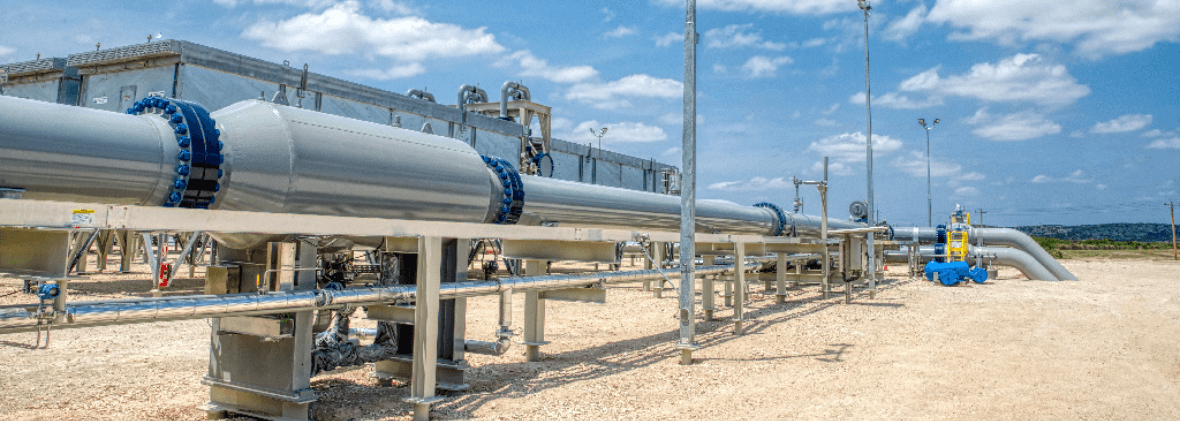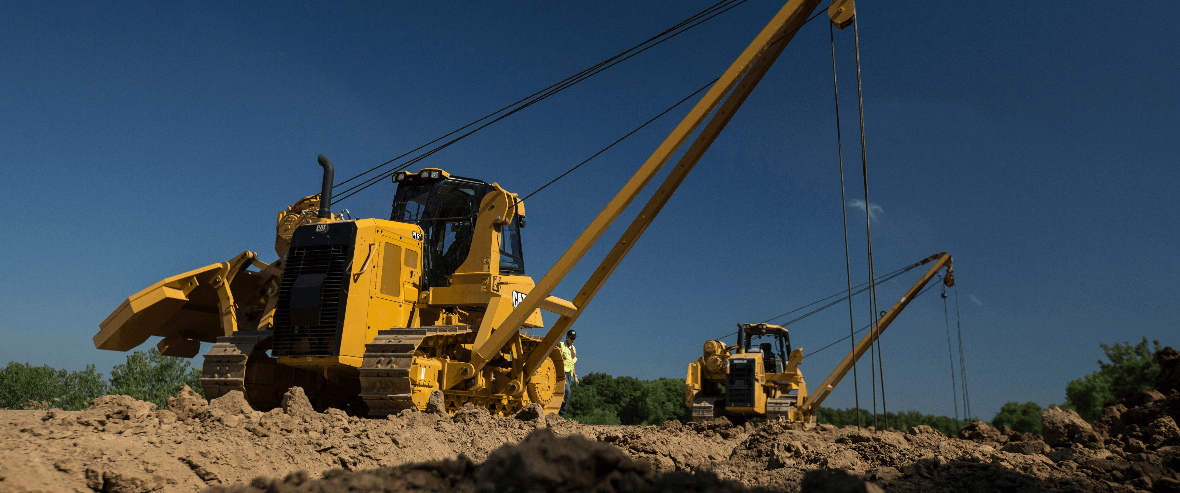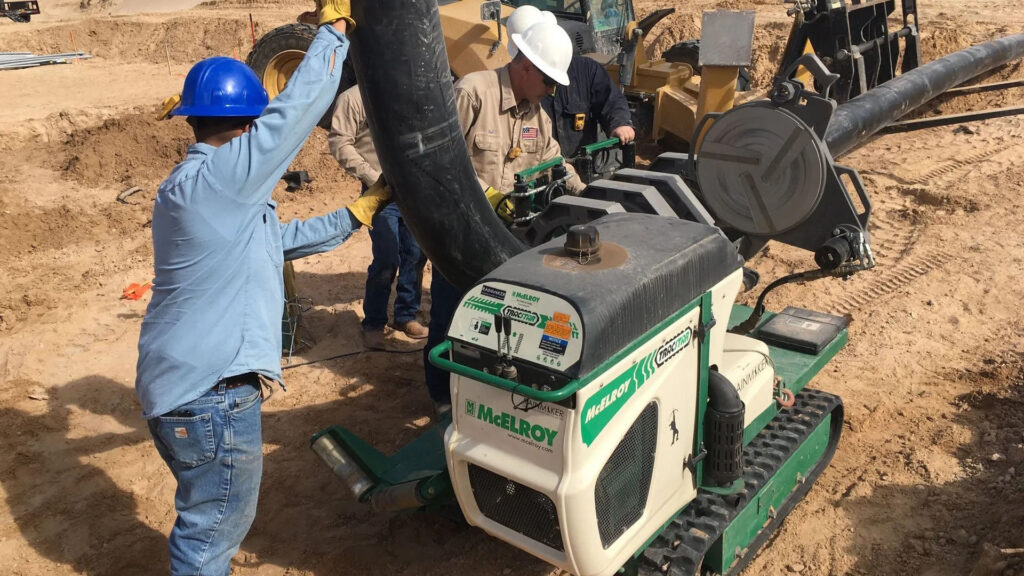A Comprehensive Overview to the Different Sorts Of Oil Field Equipment and Pipeline Equipment Available
The oil and gas market counts heavily on specialized equipment for effective extraction and transportation. Numerous kinds of equipment, from drilling rigs to storage space tanks, play important duties in this complex procedure. Each tool serves distinctive features that add to total operational success. Comprehending these elements is essential for any individual involved in the field. As the market develops, so as well do the innovations that support it. What improvements are on the horizon?

Drilling Rigs: The Foundation of Oil Expedition
Drilling rigs work as the essential machinery in the domain name of oil expedition, making it possible for business to access hydrocarbon gets hidden deep underneath the Planet's surface. These rigs can be found in numerous kinds, consisting of land rigs, offshore rigs, and mobile systems, each designed to operate in certain environments. Geared up with advanced innovation, piercing rigs can pass through geological formations with accuracy, guaranteeing effective source extraction. The structural stability and operational abilities of these rigs are essential, as they have to endure extreme conditions and substantial stress. Additionally, the selection of an exploration gear influences the overall project price and timeline, making it a crucial consideration for oil business looking for to enhance their expedition initiatives and take full advantage of performance in their procedures.
Pumps: Vital for Liquid Movement
In the oil removal procedure, the duty of pumps is considerable, assisting in the motion of fluids throughout different phases of production. Pumps are important for transporting crude oil, water, and other liquids from underground storage tanks to the surface and after that via pipes to refineries. They are available in different kinds, consisting of centrifugal, positive displacement, and submersible pumps, each offering certain objectives based upon the liquid characteristics and functional needs. Centrifugal pumps are typically utilized for their performance in high-flow applications, while favorable displacement pumps stand out in dealing with viscous fluids. The selection of pump effects general performance, operational safety and security, and maintenance prices. Proper option and maintenance of pumps are crucial for maximizing manufacturing and minimizing downtime in oil area operations.
Shutoffs: Controlling Circulation and Pressure

Valves play an essential function in taking care of the flow and stress of liquids within oil fields and pipelines. Numerous kinds of shutoffs serve distinct applications, each made to satisfy specific functions fundamental for reliable procedure - Superior Oilfield Rentals Texas. Comprehending the characteristics and usages of these valves is vital for enhancing system efficiency and safety and security
Sorts of Valves
Essential components in oil field operations, shutoffs play a crucial function in regulating the flow and pressure of liquids within pipes and equipment. Different kinds of valves are used to meet the varied needs of oil and gas manufacturing. Usual kinds include gate valves, which offer a straight-line flow and very little stress decrease; globe valves, known for their throttling capacities; and sphere shutoffs, recognized for their quick on/off control. Furthermore, check shutoffs avoid heartburn, while butterfly shutoffs provide a lightweight remedy for managing flow. Each valve type is made with certain materials and configurations to endure the severe problems often discovered in oil fields, making certain dependability and performance in procedures. Understanding these types is crucial for reliable system monitoring.
Valve Applications and Features
While different kinds of valves serve distinctive purposes, their key applications focus on managing flow and stress within oil and gas systems. Valves such as gateway, globe, and ball shutoffs manage fluid activity, making sure peak performance and safety. Gate valves are generally made use of for on/off control, giving marginal flow resistance. World shutoffs, on the various other hand, offer specific flow law, making them suitable for throttling applications. Ball shutoffs are preferred for their fast operation and tight securing capabilities. Furthermore, stress safety valve are vital for preventing system overpressure, securing tools integrity. On the whole, the suitable option and application of shutoffs improve operational effectiveness, ensuring the reputable transportation of oil and gas with pipes and handling centers.
Compressors: Enhancing Gas Transport
Compressors play a critical role in the efficient transport of gas, ensuring that it relocates smoothly through pipelines over fars away. These gadgets raise the pressure of natural gas, permitting it to get over friction and altitude changes within the pipeline system. In addition, compressors facilitate the harmonizing of supply and need, accommodating variations in usage and production prices. Numerous kinds of compressors are utilized in the market, consisting of centrifugal, reciprocating, and rotating screw compressors, each offering distinctive benefits based upon the operational demands. Normal upkeep of these compressors is vital to take full advantage of performance and minimize downtime, eventually adding to a trustworthy gas transportation network. Their vital feature highlights the significance of compressors in the overall oil and gas facilities.
Storage Tanks: Safe and Efficient Fluid Management
Efficient transportation of natural gas counts on numerous support group, one of which is the appropriate management of tank. These containers play a necessary function in securely including liquids, making sure that functional efficiency is maintained while reducing environmental threats. Constructed from durable products, they are made to hold up against high pressures and harsh components. Effectively sized and purposefully situated, storage space containers facilitate the smooth flow of gas and other fluids, avoiding bottlenecks in supply chains. Routine maintenance and surveillance are vital to detect leakages or architectural concerns, promoting safety and security and conformity with governing standards. Eventually, the reliable monitoring of storage space tanks is essential for the general honesty and integrity of the oil and gas industry's fluid handling systems.
Pipeline Solutions: Infrastructure for Transport
Pipeline systems serve as the backbone of the oil and gas industry, helping with the efficient transportation of hydrocarbons over substantial distances. These systems are composed of numerous elements, including pipelines, valves, pumps, and compressors, all meticulously developed to guarantee smooth flow. The products made use of in pipeline construction, usually steel or high-density polyethylene, are chosen for durability and resistance to corrosion. Pipeline networks can cover across land and water, linking production websites to refineries and distribution. Furthermore, progressed modern technology allows hop over to here real-time monitoring of flow prices and stress degrees, improving functional effectiveness. The calculated positioning of these pipelines decreases environmental impact while making best use of source availability, consequently playing a necessary duty in meeting power demands worldwide.
Safety And Security Equipment: Making Certain Employee and Environmental Protection
The procedure of pipeline systems, while necessary for power transportation, also offers considerable safety challenges for workers and the environment. Safety and security equipment plays a substantial duty in mitigating these dangers. Individual safety tools (PPE) such as helmets, gloves, and non-slip footwear safeguards workers from physical threats. Furthermore, gas discovery systems monitor for leakages, guaranteeing that dangerous compounds do not pose a risk to personnel or the bordering community. Emergency situation closure systems are essential for quickly stopping procedures throughout a crisis, protecting against prospective catastrophes. Spill containment materials, consisting of absorbents and barriers, are essential for lessening ecological influence. Overall, buying comprehensive safety devices is crucial for preserving operational honesty and safeguarding both workers and the Discover More Here environment in the oil and gas field.

Regularly Asked Questions
Exactly how Do I Select the Right Oil Field Equipment for My Job?
Selecting the best oil area tools involves assessing job specifications, budget plan restrictions, and operational demands. Consider elements such as equipment dependability, compatibility with existing systems, and the supplier's credibility to ensure peak efficiency and safety and security.
What Are the Maintenance Demands for Oil Field Equipment?
Upkeep demands for oil field tools consist of regular inspections, lubrication, and prompt repair services. Operators must likewise follow supplier guidelines, screen performance metrics, and assurance conformity with security laws to enhance long life and effectiveness.

Just How Can I Make Certain Compliance With Environmental Regulations?
To assure compliance with environmental regulations, firms need to carry out regular audits, apply best practices, spend gauge sheet metal brake in training, maintain proper documentation, and stay updated on regulation (Superior Rentals midland). Collaboration with ecological companies can additionally enhance adherence to policies
What Is the Average Lifespan of Pipeline Equipment?
The ordinary lifespan of pipeline tools typically varies from 20 to half a century, depending on factors such as worldly high quality, ecological problems, and maintenance methods. Normal inspections can significantly affect long life and functional efficiency.
How Do I Safely Transport Oil Field Equipment to Remote Locations?
Delivering oil field tools to remote areas calls for careful preparation, including path assessment, safeguarding permits, making use of appropriate lorries, and making sure security procedures are adhered to. Appropriate training and interaction amongst staffs are important for effective transportation.